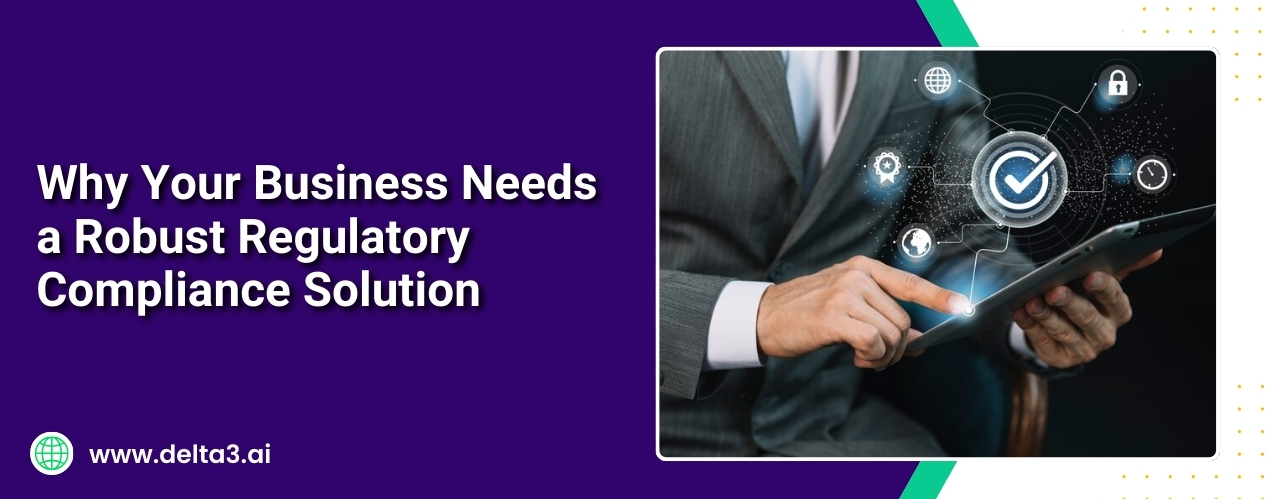What is a Regulatory Compliance Solution?
A Regulatory compliance solution is a solution that can include the tools, processes. The technologies required to ensure compliance with laws, regulations, or industry standards by an organization or business entity. Such solutions help in the management of compliance issues by helping in tracking changes. The regulatory environment, controlling compliance documents, conducting audits, and training employees. Then compliance solution saves the organization from the consequences of non-compliance issues like fines, legal suits, and damage to the reputation of the business.
What is Regulation?
Business regulation is the set of laws that are provided by the government and the overseeing regulatory compliance associates that firms have to respond to. These regulations are useful to prevent unfair practices among businesses. To secure the rights of consumers along with the integrity of the market, and to prevent any serious impact on the environment and social system. Compliance rules differ by the industries of operation and the authority wherein they may encompass. Such areas as data management and protection, accounting and audit, health, safety, and environment. Adhering to these regulations is the key for organizations to be able to practice legal and ethical conduct in business.
The Benefits of a Regulatory Compliance Solution
- Risk Mitigation: Regulatory compliance solutions enable a firm to discover risks that are likely to occur due to a lack of compliance with the set rules. Thus protecting it from penalties and hefty fines.
- Efficiency and Cost Savings: They can also reduce or help to remove compliance manual work and therefore lead to the enhancement of organization cost benefits.
- Enhanced Reputation: Adhering to compliance standards gives confidence to customers, investors, and stakeholders as their trust in the company is boosted. Hence establishing the company’s credibility in the markets.
- Improved Decision-Making: The other advantage sort of relates to real-time compliance information or solutions. Then which enable organizations to be more informed in their decision making with regards to compliance work plans.
- Employee Awareness and Training: Some of the fairly frequently used elements of the compliance solution are presentations and seminars aimed. At familiarizing the staff of the organization with the problem of compliance.
Key Features to Look for in a Compliance Solution
- Automated Monitoring and Alerts: Seek a solution that has the ability to detect changes in regulations and notify the business of the changes needed.
- Document Management: Good compliance solutions provide efficient document organization where compliance related documents can be easily searched, copied, or viewed.
- Audit and Reporting Tools: Effective audit and reporting tools facilitate Compliance’s tracing of its activities. The creation of reports, and the preparation of backup data in case of regulatory inquiry.
- Integration Capabilities: Thus, a good compliance solution should be interoperable with other business systems. Such as ERP, CRM, and investor relations websites, to advance the business process.
- User-Friendly Interface: Simple design and top-level navigation enable employees to identify and navigate. The compliance solution with little to no help from IS professionals, improving the solution’s use.
Also Read: Stay Ahead of the Market: Best Stock Alerts for Smart Investors
Why is Regulatory Compliance important in Business?
The importance of regulatory compliance experts for businesses is explained by several factors. First of all, it minimizes the legal risks; hence, the company will not incur losses through fines, penalties, or any legal action that may be taken against it. Secondly, it shows the company has good practices in terms of legal requirements and other corporate and social responsibilities. Hence gaining the trust of customers, investors, and society in general. Third, compliance can aid operational success in terms of avoiding deviations that could lead to errors that are costly to the firm. Last but not least, a strong compliance program will assist the business in avoiding reputational loss and, in the long run, growth and success.
Conclusion
Regulations are constantly changing, and today they are stricter than they used to be. Which is why depending on a solid regulatory compliance solution is crucial for a business. Such a solution proves to be useful in managing risks, productivity, and developing good relationships with stakeholders. Therefore, when implementing compliance, businesses should consider acquiring a robust solution for compliance that contains necessary functionalities. Such as continual monitoring of activities, document handling, and compatibility with other systems to provide comprehensive compliance with necessary procedures to verify a company’s functionality. Appreciating the significance of regulatory compliance not only as a protection against legal, message development, and financial risks but also as a proactive measure that improves the company’s image and outcome is a major feature of a strategic approach.
FAQs
1. Why is compliance important for business?
Then Compliance ensures ethics in business, helps in avoiding illegality, and helps in maintaining a good reputation, but which will attract investors, customers, and employees. The organization minimizes risks, hence enhancing its growth.
2. What is the purpose of compliance?
Through compliance, procedures are brought forward to guide employees in their operations to avoid violating the law and regulations that may bring reputational losses to the company.
3. What is good compliance?
A strong compliance program also not only brings the organization into compliance with legal standards. But also ensures that it is seen as conforming to good practices by all relevant stakeholders, such as employees, customers, partners, and regulators.

